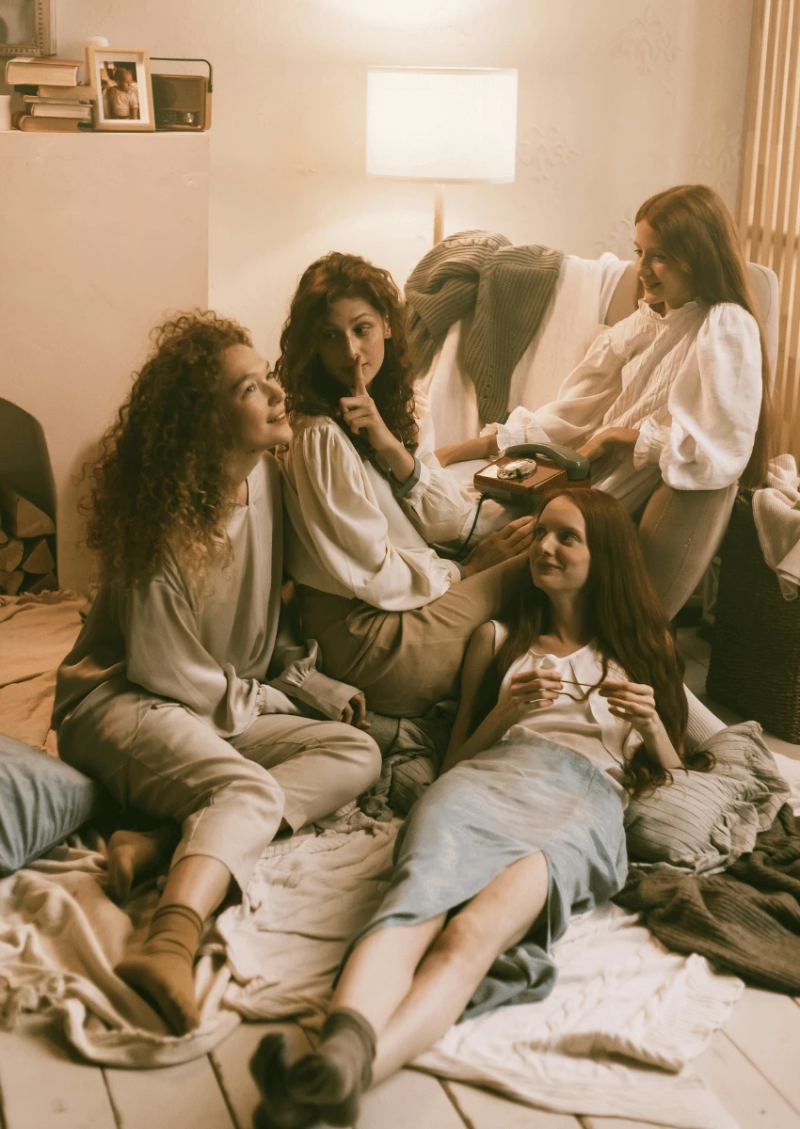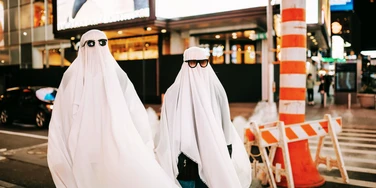When I was growing up in the 80s and 90s, rom-coms were considered to be one of the most popular movie genres in the market. By the 2000s, nothing really changed. People saw romantic comedies as the go-to feel-good movie genre.
Rom-coms had a certain appeal that came with them. They were meant to be lighthearted, fun, and a little romantic. To many of us, they were a fun break from reality. The plots were fairly stereotypical and predictable:
1. Awkward Good Guy has a crush on the Hot. This often included shots of him getting bullied by the Cool Jock type or the Bad Boy. Good Guy is not attractive, nor is he as well-off or interesting as his romantic rivals. However, Good Guy is portrayed as “good” because the narrator says so.
2. Good Guy relentlessly pursues the Hot Girl, is super nice to her, and maybe gets a makeover. In many cases, Good Guy may have a hilarious misadventure that leads him to say his feelings to her.
3. Hot Girl eventually realizes that Cool Jock is not for her, and she’d rather have Good Guy. They live happily ever after because why not?
Sometimes, writers would spice things up by switching Good Guy for Nerdy Girl Who Gets A Makeover. Or, they might pull a Tyler Perry and switch Good Guy for Church Girl or Church Guy. Regardless, the plot remains the same.
By the late 90s, there was a running movie trope gag of characters who would break the fourth wall by reminding the Good Guy that “the guy always has to get the girl” by the end of the movie. It was cheeky, but it seemed harmless at the time. Seemed to be the key word there.
Lately, I noticed something odd in mainstream media: the end of romantic comedies.
 Ron Lach | Pexels
Ron Lach | Pexels
Has anyone else noticed something missing in recent years? It took me a while to realize it, but it’s been a very long time since I’ve heard of a smash hit romantic comedy hitting movie theaters. Even romance movies seem to have died out.
During the 2000s, it was hard to get away from this genre. You’d hear guys ask girls to see movies like Little Nicky, Meet the Fockers, or 50 First Dates. Girls would kick off their slumber parties with a watch of Twilight.
From the 1980s to the 2000s, the message was clear. The romance was in the air … and in the box office!
Maybe it’s just me, but I can’t ignore how rare it is to hear girls talk about their favorite rom-coms. Even sitcoms started to dial down the talk of romance — especially when it came to plots where the Good Guy gets the Hot Girl.
As of right now, the only real romance-oriented show I’ve seen take people by storm is Bridgerton or Nobody Wants This. In almost every other major TV show or movie, romance tends to take the back seat or is used as a vehicle to show the absurdity of modern dating.
No matter how you slice it or dice it, it seems like our culture has fallen out of love with romance movies. People are not only disinterested in rom-coms, they are actively avoiding showing them to their kids and teens.
Don’t believe it? Look at the new modern kids’ movies on the market. Even Disney toned down the romance talk. Considering that their biggest moneymaking franchise used to be love stories about princesses, that’s a huge deal.
What gives? So, I have a theory about why our culture stopped loving movies about romance and comedy. I’ve noticed many other people agree with — or at the very least have seen evidence of it.
I believe romantic comedies have damaged an entire generation’s expectations of dating — for example:
1. Men believe that they should be able to get a model-like girlfriend despite not bringing anything to the table. Sorry, attraction doesn’t work that way 90 percent of the time. Women have a right to date who they’re attracted to.
2. Women have internalized “giving the Nice Guy a chance” despite being unattracted to him. Most of the superficially nice guys aren’t good men. They’re horrible. And it gets worse. If the guy hurts her, other men don’t blame the guy. They blame her for not choosing a “real nice guy.”
3. Men have started to believe women are at fault if they are rejected. They don’t try to improve themselves or do any sort of introspection. Rather, they lash out at women because the expectation of a “yes” was unmet. Notice that this isn’t nice behavior. It doesn’t matter, though. In the movies, the Good Guy was labeled “good,” and that’s all the virtue he needed to win the girl. The girl’s interests never really came into play.
4. Women have started to internalize ignoring red flags from those movies. I’ll be honest, Beauty and the Beast did a number on me because I internalized the idea that I could change abusive men from that movie.In real life, Belle should have let Gaston maim the beast and then stayed single because both of those guys were awful.
5. Men have internalized a lot of awful dating advice. Sorry guys! Most women do not want you to keep pursuing them if they say no the first time — and the girls who do want that are not the girls you want to date. Too many men also internalized the idea of a redemption arc or the idea of women being their vehicle for self-development. Real life doesn’t work like that.
6. Both genders assume that love is enough to make a relationship work. It’s not. Sorry to burst everyone’s bubble. You need similar goals, a steady income to float you both, decent communication skills, and emotional intelligence to make it work. Even then, it might not be enough.
7. These movies also taught way too many people that being in a relationship is everything. Thank goodness the movie Frozen bucked that trend.
Rom-coms were great at tricking women into seeing the best in awful men and tricking decent men into being losers. These movies (and their toxic messages) wrecked the love lives and dating mentalities of millions of people. I don’t think that I’m alone when I say I believe the toxic romantic comedies of 20 years ago primed a lot of us for miserable dating lives.
According to a few enterprising social scientists at Heriot-Watt University in Edinburgh, romantic comedies can raise unrealistic romantic expectations among fans and may, therefore, set them up for personal failure and a lifetime of disappointment. Bjarne Holmes, the lead researcher on the project at the university’s Family and Personal Relationships Laboratory, was asked if he wasn’t severely underestimating the intelligence of the moviegoing audience.
“Oh no,” he responded. “Audiences can see that movies are not reality. We know this. But there’s some emerging evidence that it still impacts our emotional lives.” However, argued Holmes, when we have the great fortune to marry for true love, we don’t need all those overwrought narratives about finding our soul mates. “The myths have outlived their usefulness,” he said, reported in 2014 by the Los Angeles Times.
 Marcus Silva | Pexels
Marcus Silva | Pexels
Rom-coms aren’t funny or sweet when they contribute to serious problems in society.
There are a lot of romance movies that we are starting to re-examine, only to realize how awful they really are. While not all of them are being revealed as weird, unethical, or even pro-harassment, enough of them are to make us rethink love stories.
For example, The Notebook started with infidelity. Crazy, Stupid Love had an entire arc with a guy in love with his babysitter who relentlessly pursued her despite her telling him she was uncomfortable. His babysitter eventually sends him nudes. And Twilight? That Alpaca-looking werewolf falls in love with a literal baby.
If I was Bella, I would have called Chris Hansen from To Catch A Predator. Of course, that didn’t seem to matter to #TeamJacob for that particular era of romantic weirdness. But I digress.
A 2013 analysis from Georgetown College used the Social Cognitive Theory, which suggests that “individuals commit to memory behaviors they have observed to memory to be later used as models on which to base their behavior.” Behaviors are likely to be modeled when they are accomplished by individuals who are seen as desirable and if outcomes are perceived as alluring to the audience.
When referring specifically to romantic comedies, the theory suggests that the audience may actively observe the behavior within relationships depicted by the media to understand how they could behave in their relationships. Unsurprisingly, it was found that “With the media typically relying on unrealistic portrayals of relationships, it may be that adolescents modeling their behavior on those seen in the media are unlikely to achieve the observed desired outcomes.”
The damage by 80s and 90s romantic comedies was real and exacerbated by loneliness.
During eras when people were far more social and connected, these rom-coms likely wouldn’t have had as much impact as they do today. However, Millennials were the first generation to have individuals who were isolated and alone for most of their days.
When you’re a teenager trying to woo that cutie in class, you’re likelier to pick up a romance movie than ask your bros. (And that is assuming, of course, that you don’t make the mistake of opting for a misogynist like Andrew Tate.)
The moves done in rom-coms don’t work in real life. They tend to be seen as a form of stalking or harassment. When these actions fizzle, guys assume that it’s because Hot Girl likes the Bad Boy — another trope they picked up from these movies.
It can turn into a spiral of mess. If you think about it, rom-com messaging plays into the hand of the Red Pill ideology by teaching young boys that girls like Mean Football Jocks. I shouldn't have to explain how damaging that is to growing boys.
 Pheelings media | Shutterstock
Pheelings media | Shutterstock
While romance movies will never fully die out, chances are high that the rom-coms of yesteryear won’t ever come back in style.
We live in a world where we’re becoming increasingly aware of the messaging media sends to us. We witnessed the damage of propaganda in our news, the growing heavy-handed use of politicized entertainment to indoctrinate others, and more.
Even if those romantic comedies were made with the intention of lighthearted fun, they seem to have been permanently tainted in the eyes of consumers. We’re realizing how unrealistic and damaging they are — and that’s a sign that classic rom-coms are going to die out.
What will go in their place, though, might still be romantic. We’ve seen amazing couples dynamics in kid's shows like Steven Universe and Bluey. Adult animation megahit Helluva Boss nailed a lot of realistic, nuanced issues that happen in relationships very well. So did the interfaith Netflix rom-com Nobody Wants This.
I, for one, won’t miss the era of cheesy, poorly-written romance movies. The end of society’s sordid affair with that genre can’t come fast enough.
Ossiana Tepfenhart is a writer whose work has been featured in Yahoo, BRIDES, Your Daily Dish, Newtheory Magazine, and others.
This article was originally published at Medium. Reprinted with permission from the author.



